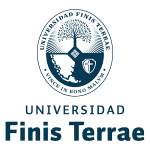Your strategic partner in
Assurance Consulting Auditing Risk Advisory
We stand out for offering customized solutions in external auditing, assurance, risk management, and consulting for companies seeking to grow with confidence and transparency.





Services
Clear solutions for a complex environment
We tailor our expertise to the specific needs of your company, regardless of its size or sector.
Auditing & Assurance
We validate your processes, ensure the integrity of financial information, and build trust among your stakeholders.
Risk Advisory
We identify, assess, and mitigate risks that could affect the growth,
reputation, or operational continuity of
your business.
Consulting
We provide accounting, tax, legal, and operational advice, with a comprehensive and personalized approach.
SMEs
We support entrepreneurs, micro-businesses, and innovators with accounting, financial, labor, and tax services tailored to your needs.
Academy
A space designed to boost your professional development and that of your organization through practical, dynamic, and up-to-date learning experiences.
Auditing & Assurance
We validate your processes, ensure the integrity of financial information, and build trust among your stakeholders.
Risk Advisory
We identify, assess, and mitigate risks that could affect the growth,
reputation, or operational continuity of
your business.
Consulting
We provide accounting, tax, legal, and operational advice, with a comprehensive and personalized approach.
SMEs
We support entrepreneurs, micro-businesses, and innovators with accounting, financial, labor, and tax services tailored to your needs.
Academy
A space designed to boost your professional development and that of your organization through practical, dynamic, and up-to-date learning experiences.
As members of IAPA International, we connect with experts in over 60 countries.
A boutique firm with a comprehensive approach
Grupo AA&C supports companies and organizations in consolidating their growth through specialized solutions in auditing, risk management,
, and strategic consulting.
Partnerships that generate value
We share tools and perspectives for making informed decisions in a changing environment.

Having your house in order before and during an M&A process is essential. No matter how attractive an asset or company may be, the chances of successfully passing due diligence decrease considerably if the accounting is not in order. In this regard, our experience working with AAC was excellent for several reasons. Their solid technical knowledge and the quality standard of their deliverables. Their flexibility and adaptability in understanding the specific needs of the client.
Nathan Melnick
Chief Executive Officer


Your presence and commitment were fundamental to the success of this activity, which brought together students and graduates with leading companies and institutions in the country. Thanks to your collaboration, we were able to create a meeting space that fostered the exchange of experiences, professional networking, and the creation of concrete job opportunities.
We deeply appreciate the time and dedication your team devoted to sharing with our students, answering their questions, and showing them the possibilities for development
in your organization. We hope to continue strengthening this relationship and count on your participation again in future events that promote job placement and the development of young talent.
Ph.D. Jaqueline Gomez Mendez
Dean, Faculty of Economics and Business, Finis Terrae University

During the recent QA process, ACC and Roberto in particular generated valuable recommendations for the team, beyond IIA standards. Their close approach and the implementation of a 360° assessment with various team members are noteworthy aspects. These activities will contribute to the continuous improvement of our internal practices.
Sebastian Koch
Senior Internal Audit Manager


We began working with AA&C Advisory Consultores Spa. in February 2023. From the outset, they have provided us with excellent service, demonstrating professionalism, commitment, dedication, responsibility, quick responses, and solid knowledge. The support and guidance of one of the partners has been fundamental in our process of developing the area. An excellent experience, which I recommend 100%.
Yanina Castillo P.
Corporate Internal Auditor, C&L Fruit

We began working with AA&C Advisory and Consultores Spa in August 2021. It has been a great experience and a source of support in management, administration, and planning in relation to our clinic's strategic lines of development. They have been part of our team, providing quick responses and solutions to problems that arise in different areas. Most importantly, they demonstrate integrity in their processes and generate trust, which creates a virtuous circle between our clinic and them. Highly recommended!!!
Cecia Riquelme
Surgeon, CEO of Clinica Vitmet
Strategic thinking in action
We share tools and perspectives for making informed decisions in a changing environment.
